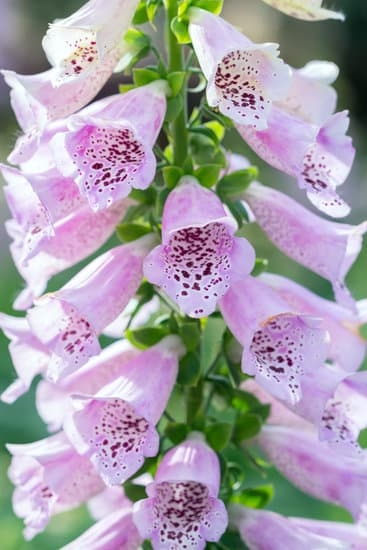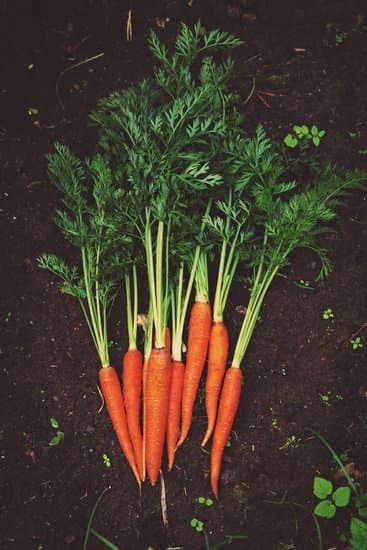Earth Day, celebrated on April 22nd, is an annual event that brings attention to environmental protection and sustainability. This special day serves as a reminder for individuals and communities to take action and adopt eco-friendly practices that contribute to the well-being of our planet. Earth Day gardening ideas offer a perfect opportunity to embrace sustainable living and make a positive impact on the environment.
Gardening plays a crucial role in Earth Day celebrations as it directly connects us to the natural world and provides an avenue for promoting responsible environmental stewardship. From sustainable gardening practices to creating pollinator-friendly gardens, there are numerous ways to honor Earth Day through gardening.
As we observe Earth Day, it is important to recognize the significance of incorporating eco-friendly methods into our gardening routines. By implementing sustainable gardening practices, we can minimize our environmental footprint and support local ecosystems. In the following sections, we will explore various Earth Day gardening ideas that promote environmental conservation and encourage responsible stewardship of our planet’s resources.
Sustainable Gardening Practices for Earth Day
Sustainable gardening practices are essential for Earth Day and beyond, as they contribute to the preservation of our planet and local ecosystems. By implementing eco-friendly techniques in our gardens, we can reduce our environmental footprint and support the health of the planet. There are various sustainable gardening practices that individuals can implement to celebrate Earth Day and make a positive impact on the environment.
Organic Gardening
One important sustainable gardening practice is organic gardening, which involves avoiding synthetic chemicals and pesticides. By using natural alternatives such as compost, mulch, and beneficial insects, gardeners can promote a healthy and balanced ecosystem in their gardens. Organic gardening helps to minimize harm to the environment and supports biodiversity.
Water Conservation
Another crucial aspect of sustainable gardening is water conservation. With climate change leading to more frequent droughts in many regions, it’s important for gardeners to use water wisely. Installing rain barrels, drip irrigation systems, and collecting rainwater for garden use are effective ways to conserve water while ensuring that plants receive adequate moisture.
Native Planting
Planting native species in your garden is also an eco-friendly practice that supports local ecosystems. Native plants require less maintenance, as they are well-adapted to the climate and soil conditions of a specific region. Additionally, they provide food and habitat for pollinators and wildlife, contributing to the overall health of the environment.
By incorporating these sustainable gardening practices into our Earth Day gardening activities, we can make a positive impact on the planet while enjoying a thriving and beautiful garden. Whether you’re new to gardening or have been tending to your garden for years, there are always opportunities to embrace earth day gardening ideas that benefit both your own space and the world around you.
Creating a Pollinator Garden to Support Local Ecosystems
One of the most impactful ways to celebrate Earth Day through gardening is by creating a pollinator garden. Pollinators, such as bees, butterflies, and hummingbirds, play a crucial role in maintaining the health and diversity of local ecosystems. By providing a habitat and food source for these essential creatures, you can contribute to the preservation of biodiversity in your area.
To get started with your pollinator garden, consider planting native flowering plants that provide nectar and pollen throughout the growing season. Flowers like bee balm, coneflower, and milkweed are excellent choices for attracting and supporting pollinators. Additionally, incorporating a variety of flower shapes and colors will appeal to different types of pollinators and ensure a thriving ecosystem within your garden.
Incorporating water sources such as birdbaths or shallow dishes filled with water can also provide much-needed hydration for visiting pollinators. It’s important to choose pesticide-free gardening methods to protect these beneficial insects from harmful chemicals. By implementing these practices in your garden, you can create a welcoming environment for pollinators and make a positive impact on the local ecosystem.
| Pollinator Garden Plants | Features |
|---|---|
| Bee Balm | Produces nectar-rich flowers that attract bees |
| Coneflower | Drought-tolerant plants that provide food for various pollinators |
| Milkweed | An essential food source for monarch butterflies |
Companion Planting for a Thriving and Diverse Garden
One of the most sustainable and eco-friendly gardening practices is companion planting. This method involves planting different types of plants together to enhance growth, deter pests, and attract beneficial insects. By understanding which plants complement each other, gardeners can promote a thriving and diverse ecosystem within their garden, making it an ideal activity for Earth Day gardening ideas.
Benefits of Companion Planting
Companion planting offers numerous benefits for both the plants and the environment. For instance, certain plant combinations can help repel harmful insects naturally, reducing the need for chemical pesticides. Additionally, some companion plants can improve soil quality by fixing nitrogen or providing ground cover to prevent erosion. By creating a more balanced and diverse garden ecosystem through companion planting, gardeners can contribute positively to their local environment on Earth Day.
Examples of Successful Companion Planting
Numerous successful companion planting combinations exist that exemplify the benefits of this practice. For instance, planting marigolds alongside tomatoes can help repel nematodes and other harmful pests while promoting healthier tomato growth. Another example is growing basil next to peppers, as basil can enhance the flavor of peppers while deterring spider mites and aphids. These examples showcase how thoughtful plant pairings can lead to a bountiful harvest while reducing the reliance on synthetic fertilizers and pesticides.
Key Considerations for Effective Companion Planting
When implementing companion planting in a garden, it is essential to consider factors such as sun exposure, water requirements, and growth habits of different plant species. Understanding these elements will ensure that the chosen companion plants thrive together harmoniously.
Additionally, it is beneficial to research specific plant pairings that are well-suited for particular garden conditions and goals. By taking these considerations into account, gardeners can create a flourishing and sustainable garden using companion planting techniques on Earth Day and beyond.
Upcycling and Repurposing Materials for Garden Projects
Gardening on Earth Day is not only a way to celebrate the beauty of nature but also an opportunity to contribute positively to the environment. Upcycling and repurposing materials for garden projects are great ways to reduce waste and create a sustainable garden space. From using old tires as planters to repurposing pallets into raised beds, there are numerous creative ideas to explore.
One popular upcycling idea is turning household items like mason jars, tin cans, or milk jugs into seed starters or herb planters. Not only does this reduce the amount of waste going into landfills, but it also adds a unique touch to your garden. Additionally, repurposing kitchen scraps and yard waste into compost is an eco-friendly way to nourish your garden while reducing organic waste.
According to research from the Environmental Protection Agency, yard trimmings and food residuals together constitute 28 percent of what we throw away. By transforming these materials into nutrient-rich compost, gardeners can significantly reduce their ecological footprint while enhancing their gardens’ health. This Earth Day, consider creating a composting system using everyday materials like wire fencing or wooden pallets as an effective way to repurpose organic waste.
| Upcycling Idea | Benefit |
|---|---|
| Turning old tires into planters | Reduces waste and creates unique garden design |
| Repurposing kitchen scraps into compost | Nourishes the soil while reducing landfill waste |
| Using pallets for raised beds | Creative way to upcycle and build sustainable gardening space |
Water Conservation Tips for Environmentally-Friendly Gardening
When it comes to Earth Day gardening ideas, incorporating water conservation practices is essential for sustainable and eco-friendly gardening. Conserving water not only benefits the environment but also helps reduce your water bill. Here are some practical tips for conserving water in your garden:
- Choose drought-resistant plants: Selecting plants that are native or well-adapted to your local climate can help decrease the amount of water needed for your garden.
- Use mulch: Applying a layer of organic mulch, such as wood chips or straw, around your plants helps retain moisture in the soil and reduces the need for frequent watering.
- Collect rainwater: Installing a rain barrel or cistern allows you to capture rainwater and use it for watering your garden, reducing the dependency on treated tap water.
Furthermore, implementing drip irrigation systems or soaker hoses can efficiently deliver water directly to the root zone of plants, minimizing evaporation and runoff. Additionally, scheduling watering sessions during the early morning or late afternoon can prevent excessive evaporation caused by direct sunlight.
Incorporating these practical water conservation tips into your Earth Day gardening activities not only promotes sustainability but also plays a significant role in preserving our precious natural resources for future generations. By taking proactive steps to conserve water in our gardens, we contribute to a healthier and more sustainable planet.
Earth-Friendly Fertilizers and Composting Techniques
When it comes to Earth Day gardening ideas, one of the most impactful ways to promote sustainability is through the use of earth-friendly fertilizers and composting techniques. By opting for natural and eco-friendly methods, gardeners can nourish their plants while minimizing their environmental impact.
Here are some earth-friendly fertilizers and composting techniques that you can incorporate into your gardening practices:
- Composting: Start a compost pile in your backyard using kitchen scraps, yard waste, and other organic materials. Not only does this reduce the amount of waste sent to landfills, but it also creates nutrient-rich soil that can be used to fertilize your garden.
- Organic Fertilizers: Instead of synthetic fertilizers that contain harmful chemicals, opt for organic alternatives such as compost tea, worm castings, seaweed extract, or fish emulsion. These natural options provide essential nutrients to your plants without harming the environment.
- Mulching: Utilize organic mulch such as wood chips, straw, or leaves to retain moisture in the soil, suppress weeds, and improve overall soil health. As the mulch breaks down, it also adds valuable nutrients to the earth.
By incorporating these earth-friendly fertilizers and composting techniques into your gardening routine, you can contribute to a healthier planet while nurturing a thriving garden. These sustainable practices not only benefit your own green space but also have a positive impact on the larger ecosystem.
How to Involve Kids in Earth Day Gardening Activities
Getting children involved in Earth Day gardening activities is a wonderful way to instill a love and respect for nature from a young age. Gardening with kids not only teaches them about the importance of caring for the environment but also provides valuable lessons in responsibility, patience, and the satisfaction of watching something grow. There are several fun and educational activities that can engage children in sustainable gardening practices on Earth Day.
One great way to involve kids in Earth Day gardening is by creating a kid-friendly garden space. This can include planting easy-to-grow vegetables or flowers, setting up a small composting area, or even building a simple DIY bird feeder. Allowing children to have their own designated gardening area will give them a sense of ownership and responsibility for the plants they care for.
Another fun activity to engage kids in Earth Day gardening is by organizing a scavenger hunt in the garden. Create a list of items commonly found in nature such as leaves, flowers, or insects, and encourage children to explore the garden while checking off each item they find. This activity not only gets kids moving and engaged with nature but also helps them develop an appreciation for the biodiversity present in their own backyard.
Lastly, involving kids in garden-based arts and crafts can be a creative way to celebrate Earth Day. Children can utilize natural materials like leaves, petals, or pinecones to create eco-friendly artwork or handmade plant markers for the garden. Engaging in hands-on activities like these helps children connect with nature on a personal level while fostering creativity and environmental consciousness.
By involving kids in Earth Day gardening activities, we not only nurture their love for nature but also inspire them to become responsible stewards of the environment as they grow older. These experiences can help shape their understanding of sustainability and conservation efforts, making them more conscious consumers and advocates for protecting our planet’s resources.
Showcasing Eco-Friendly Gardening Tools and Supplies
When it comes to celebrating Earth Day through gardening, it’s important to consider the tools and supplies you use. Choosing eco-friendly gardening tools and supplies can make a significant impact on reducing your carbon footprint and promoting sustainable practices in your garden.
One way to showcase eco-friendly gardening tools and supplies is by opting for hand tools made from recycled materials. Look for hand trowels, pruners, and cultivators that are crafted from recycled metals or plastics. These durable and reliable tools not only minimize waste but also contribute to the conservation of natural resources.
Furthermore, consider investing in rechargeable battery-powered equipment such as trimmers and lawn mowers. By using renewable energy sources to power your gardening tools, you can significantly reduce your reliance on disposable batteries and fossil fuels. Additionally, look for companies that offer refillable or biodegradable packaging for gardening products such as fertilizers, pesticides, and plant food.
Finally, explore sustainable alternatives to traditional gardening supplies such as compostable plant pots, biodegradable mulch, and organic pest control solutions. These eco-friendly options not only benefit the environment by minimizing waste but also contribute to creating a healthier ecosystem in your garden. By showcasing these eco-friendly gardening tools and supplies, you can inspire others to make sustainable choices on Earth Day and beyond.
Conclusion
In conclusion, Earth Day serves as a perfect opportunity to not only celebrate our planet, but also to engage in sustainable gardening practices that can have a long-lasting impact. By implementing the various earth day gardening ideas discussed in this article, gardeners can actively contribute to environmental conservation and support local ecosystems. From creating pollinator gardens to practicing water conservation and using eco-friendly fertilizers, there are numerous ways to make a positive impact on Earth Day and beyond.
Sustainable gardening practices not only benefit the environment but also enhance the beauty and productivity of our gardens. By incorporating companion planting and upcycling materials for garden projects, gardeners can create thriving and diverse gardens while minimizing their ecological footprint. Additionally, getting kids involved in Earth Day gardening activities can help instill a sense of environmental responsibility from a young age, ensuring that future generations continue to prioritize sustainable practices.
As we look towards the future, it is important for gardeners to continue prioritizing eco-friendly gardening tools and supplies. By showcasing and promoting these products, we can further encourage others to embrace sustainable gardening techniques. Ultimately, the impact of sustainable gardening extends far beyond Earth Day, as it plays a crucial role in preserving the planet for generations to come. It is through these conscious efforts that we can truly make a difference in protecting our environment.
Frequently Asked Questions
What Can You Plant for Earth Day?
Earth Day is a great opportunity to plant trees, flowers, or vegetables in your garden. You can choose native plants that are well adapted to your local environment and will attract pollinators like bees and butterflies.
How Do You Plant Flowers for Earth Day?
To plant flowers for Earth Day, start by preparing the soil by removing any weeds and adding organic matter like compost. Choose flowers that are beneficial for the local ecosystem and plant them according to their specific needs for sun, water, and space.
How Do You Make an Eco Garden?
Creating an eco garden involves using sustainable gardening practices such as water conservation, composting, and natural pest control. Use native plants to support local biodiversity and reduce the need for excessive watering or chemical inputs. Consider planting a variety of flowers, herbs, and vegetables to create a diverse ecosystem in your garden.

Welcome to my gardening blog! I am passionate about plants and enjoy sharing my knowledge and experiences with others. In this blog, I will write about everything related to gardening, from tips on how to get started to updates on my own garden projects.





